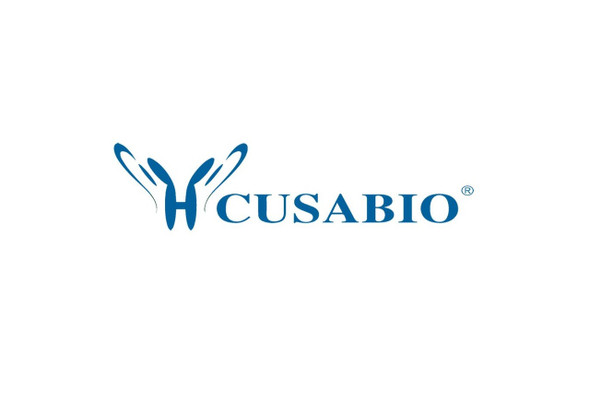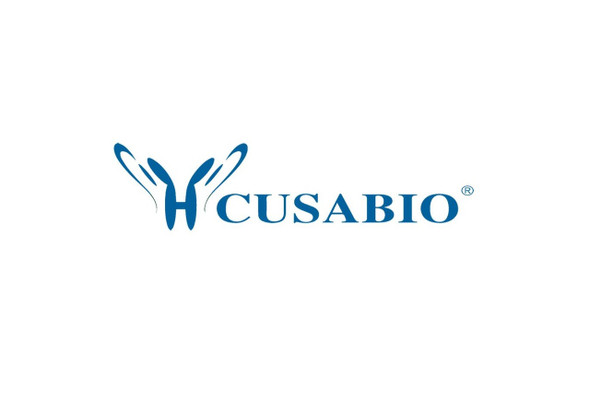Cusabio Human Recombinants
Recombinant Human Annexin A2 (ANXA2) | CSB-MP001840HU
- SKU:
- CSB-MP001840HU
- Availability:
- 3 - 7 Working Days
Description
Recombinant Human Annexin A2 (ANXA2) | CSB-MP001840HU | Cusabio
Alternative Name(s): Annexin II Annexin-2 Calpactin I heavy chain Calpactin-1 heavy chain Chromobindin-8 Lipocortin II Placental anticoagulant protein IV Short name: PAP-IV Protein I p36
Gene Names: ANXA2
Research Areas: Signal Transduction
Organism: Homo sapiens (Human)
AA Sequence: STVHEILCKLSLEGDHSTPPSAYGSVKAYTNFDAERDALNIETAIKTKGVDEVTIVNILTNRSNAQRQDIAFAYQRRTKKELASALKSALSGHLETVILGLLKTPAQYDASELKASMKGLGTDEDSLIEIICSRTNQELQEINRVYKEMYKTDLEKDIISDTSGDFRKLMVALAKGRRAEDGSVIDYELIDQDARDLYDAGVKRKGTDVPKWISIMTERSVPHLQKVFDRYKSYSPYDMLESIRKEVKGDLENAFLNLVQCIQNKPLYFADRLYDSMKGKGTRDKVLIRIMVSRSEVDMLKIRSEFKRKYGKSLYYYIQQDTKGDYQKALLYLCGGDD
Source: Mammalian cell
Tag Info: N-terminal 6xHis-tagged
Expression Region: 2-339aa
Sequence Info: Full Length of Mature Protein
MW: 42.5 kDa
Purity: Greater than 90% as determined by SDS-PAGE.
Relevance: Calcium-regulated membrane-binding protein whose affinity for calcium is greatly enhanced by anionic phospholipids. It binds two calcium ions with high affinity. May be involved in heat-stress response. Inhibits PCSK9-enhanced LDLR degradation, probably reduces PCSK9 protein levels via a translational mechanism but also competes with LDLR for binding with PCSK9 (PubMed:18799458, PubMed:24808179, PubMed:22848640).
Reference: "Two human 35KDA inhibitors of phospholipase A2 are related to substrates of pp60v-src and of the epidermal growth factor receptor/kinase."Huang K.-S., Wallner B.P., Mattaliano R.J., Tizard R., Burne C., Frey A., Hession C., McGray P., Sinclair L.K., Chow E.P., Browning J.L., Ramachandran K.L., Tang J., Smart J.E., Pepinsky R.B.Cell 46:191-199(1986)
Storage: The shelf life is related to many factors, storage state, buffer ingredients, storage temperature and the stability of the protein itself. Generally, the shelf life of liquid form is 6 months at -20?/-80?. The shelf life of lyophilized form is 12 months at -20?/-80?.
Notes: Repeated freezing and thawing is not recommended. Store working aliquots at 4? for up to one week.
Function: Calcium-regulated membrane-binding protein whose affinity for calcium is greatly enhanced by anionic phospholipids. It binds two calcium ions with high affinity. May be involved in heat-stress response. Inhibits PCSK9-enhanced LDLR degradation, probably reduces PCSK9 protein levels via a translational mechanism but also competes with LDLR for binding with PCSK9
Involvement in disease:
Subcellular Location: Secreted, extracellular space, extracellular matrix, basement membrane, Melanosome
Protein Families: Annexin family
Tissue Specificity:
Paythway:
Form: Liquid or Lyophilized powder
Buffer: If the delivery form is liquid, the default storage buffer is Tris/PBS-based buffer, 5%-50% glycerol. If the delivery form is lyophilized powder, the buffer before lyophilization is Tris/PBS-based buffer, 6% Trehalose, pH 8.0.
Reconstitution: We recommend that this vial be briefly centrifuged prior to opening to bring the contents to the bottom. Please reconstitute protein in deionized sterile water to a concentration of 0.1-1.0 mg/mL.We recommend to add 5-50% of glycerol (final concentration) and aliquot for long-term storage at -20?/-80?. Our default final concentration of glycerol is 50%. Customers could use it as reference.
Uniprot ID: P07355
HGNC Database Link: HGNC
UniGene Database Link: UniGene
KEGG Database Link: KEGG
STRING Database Link: STRING
OMIM Database Link: OMIM









